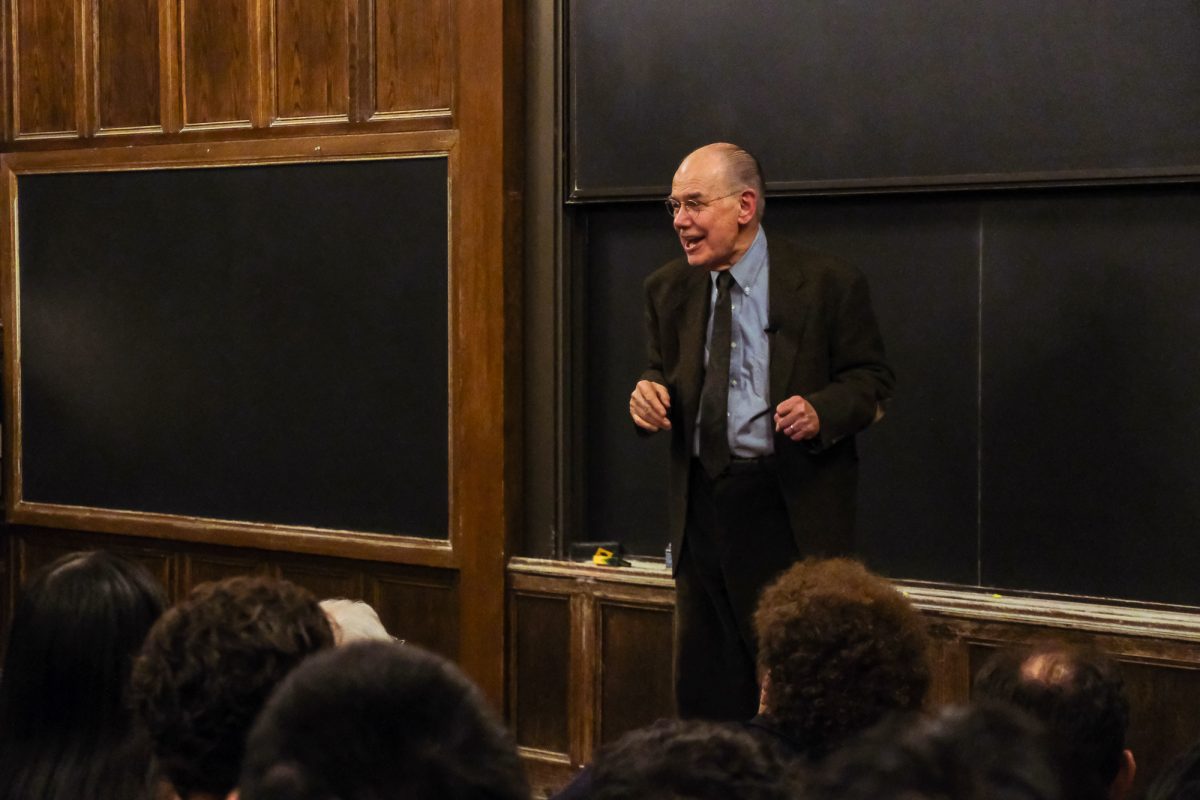It had been three quarters of an hour since I’d spoken. I sat at the kitchen table bitterly watching my best friend and her boyfriend turn the process of making tea and tapioca into an opportunity for apologetic comments of “I’m sorry I don’t have milk, this is going to taste bad, I’m sorry,” and sweet answers running along the lines of “It’s not your fault, no, really, don’t worry about it.” Ensue cuddling over the teapot. Not only did I feel out of place—I felt invisible, neglected, resentful, and sullen. Like a baby, I wanted to cry annoyingly for attention. But I knew that I shouldn’t feel that way.
When my best friend and her boyfriend began their relationship, she promised me that I would be just as important to her as before. And I believed her. I was fairly good friends with the boy in question, so I assumed hanging out with them wouldn’t change much. But although that was the case in the beginning, inevitably things shifted. There are only two front seats in a car, so I always sat in the back as the two of them made small talk up front. They continued to invite me to restaurants and movies, and I, not wanting to lose intimacy with my best friend, continued to tag along. Of course the two of them had their dates alone, but every week there was some event in which I was involved. I watched her open his birthday present and hug him fiercely in thanks and couldn’t help but think that all hugs I received from her were now secondary. Our late-night conversations would no longer be sacrosanct. There were things that she would share with him that I would not be privy to. I wasn’t even the first person that she would turn to in times of crisis. The clear thing to do in such a situation was to find other friends to hang out with—which I did—but I was also unwilling to drift apart from her. Nor was I willing to enter a relationship simply to no longer be a single entity, a one, alone. The result? Sullen me sitting, forgotten, at the kitchen table as the two of them lovingly made tea together.
It was not terrible all of the time. Joking with the two of them and critiquing the innumerable new restaurants we went to that year was undeniably fun, and I got by quite well—except for the jolt. There was always a jolt, like when I saw the two of them dancing together at a graduation party thinking of no one but each other, and tore myself away in a vile mood to brood upon my uselessness, my jealousy, and the frustration at myself that I should feel this way.
What should a third-wheeler do? The word evokes childish tricycles, or an extra just-in-case tool for a two-wheel vehicle. In either case, it isn’t pleasant to be one. I’ve been advised to either grin and bear it, or stop agreeing to third-wheel all the time, but what am I to do when both people of the couple in question are both good friends? I wanted their relationship to succeed. I wanted them to be happy. How does a third-wheeler force itself between two wheels peacefully spinning together without disrupting their motion? Even when we graduated, even throughout the long summer when the two of them grew closer than ever, I did not say a word. Another aspect of being a third-wheeler: unspent words collecting into an enormous reservoir of mixed emotions.
Ever since my roommate’s boyfriend moved in with us at the beginning of autumn quarter, I have lived a life of constant third-wheeling. I am almost completely oblivious to public displays of affection at this point, and fall asleep to a background of sweet-talk. As is usually the case in all of my extended third-wheeling, I am friends with both of the people in the relationship and thus can talk and laugh with them at ease. But I don’t know if anything will ever change how I feel when I walk into my room and see the two of them peacefully napping together, or when she hugs him from behind as he sits at the desk. I can only clumsily articulate it now, as melodramatic Korean love songs play in my ears: that feeling of being alone, the world receding, a coldness suddenly heavy in my chest. Nor can I explain the shame that comes and goes like a recurring, stubborn sickness. The feeling that I am a ghost among their presence is unsettling, but that sentiment will overtake me at times too, as sometimes I think that my disappearance would not make an iota of difference. It is not with envy that I observe them, but rather with a thick and almost suffocating sense that I have somehow done something wrong. But I have not.
I have neglected to mention the hysterical lightheartedness that can come from being in the company of a couple you are friends with, or the fact that there are two people to help you rather than one, or that two peoples’ company means it is very difficult to get bored of a single personality. It is certainly not all bad. But nevertheless, third-wheeling is an odd mixture of not being alone and yet being forgotten. It’s really the aforementioned jolt, the realization of being always and forever secondary, that causes it—and as an experienced third-wheeler, I can say that the impact of that realization, no matter how many countless times it comes, never goes away.







